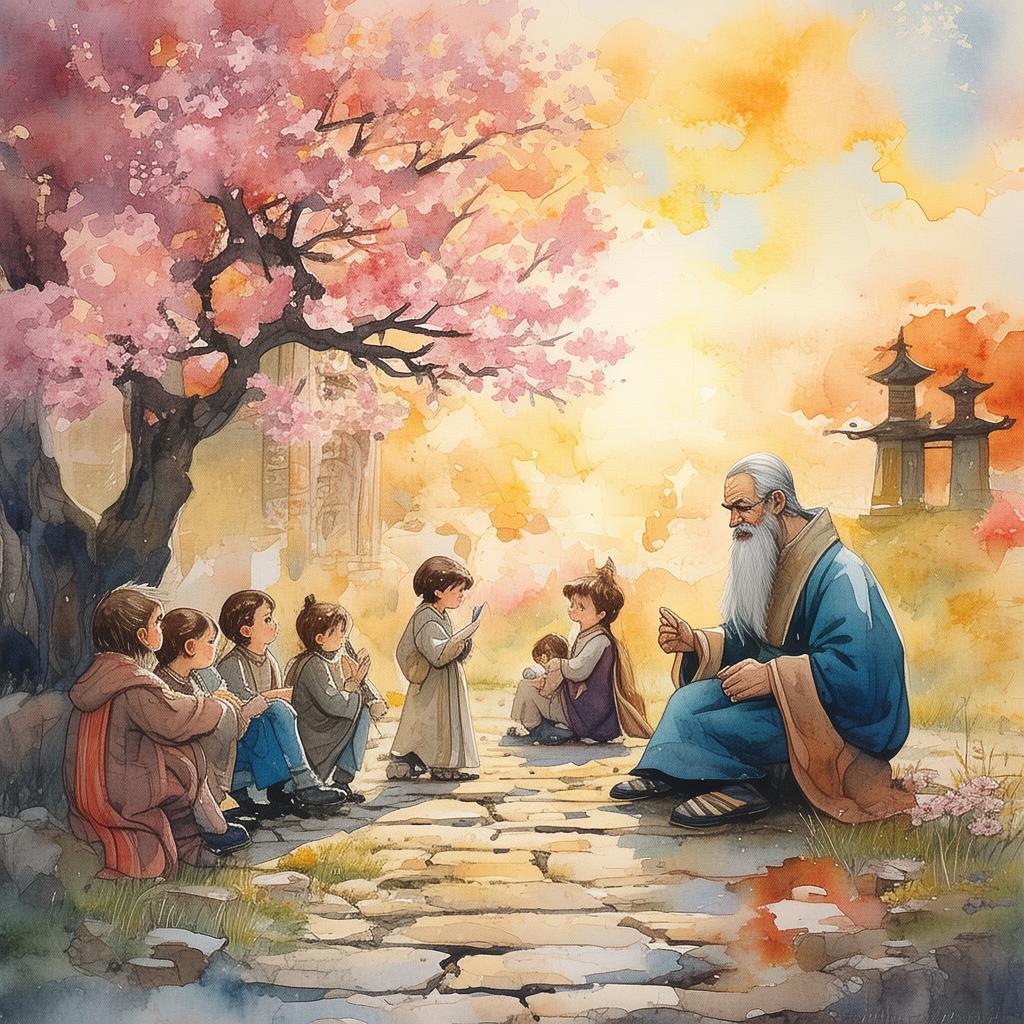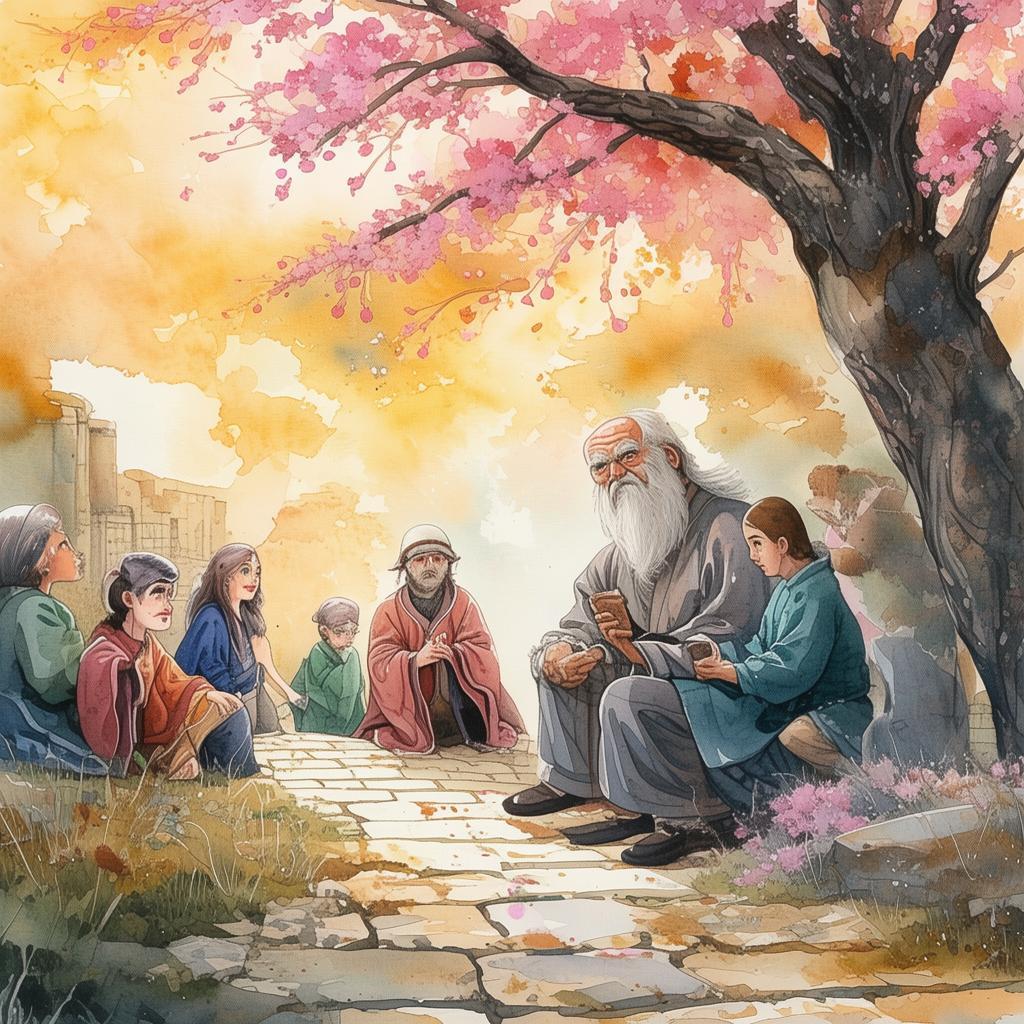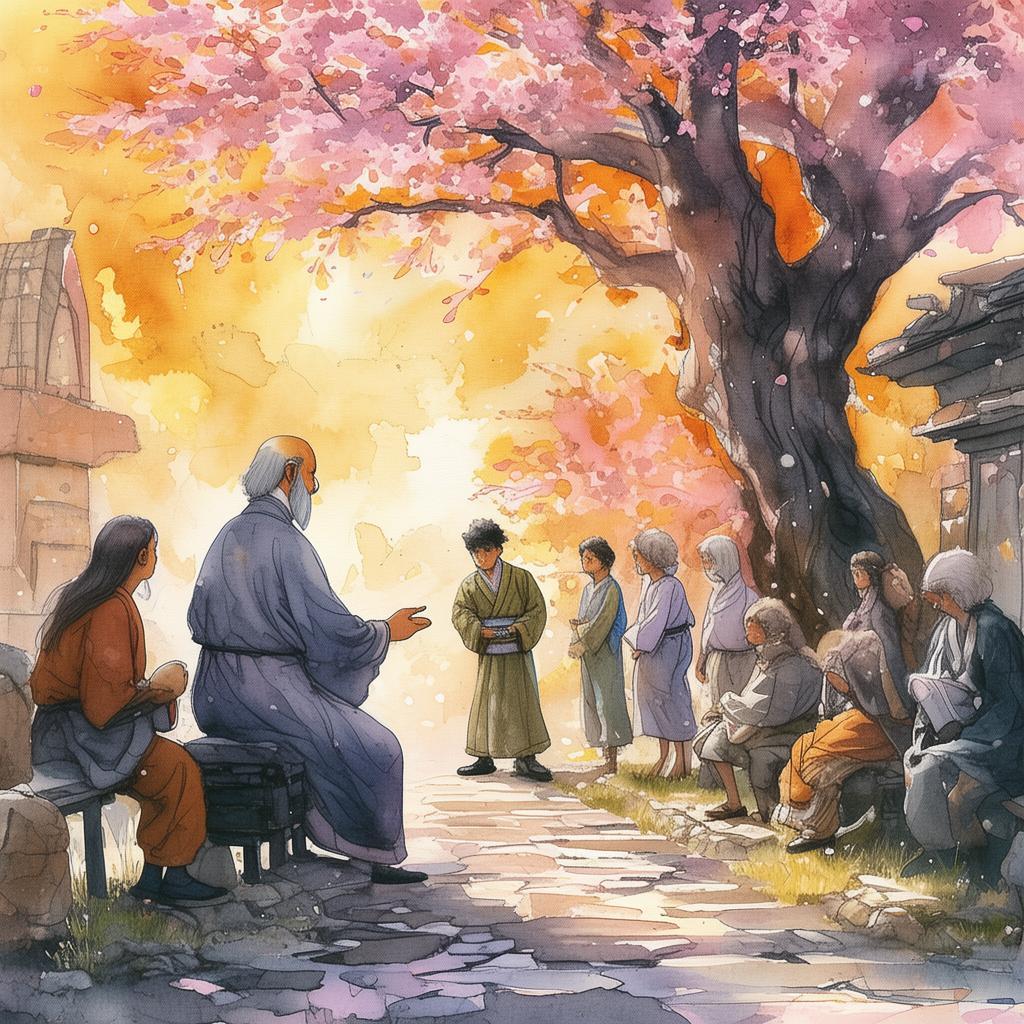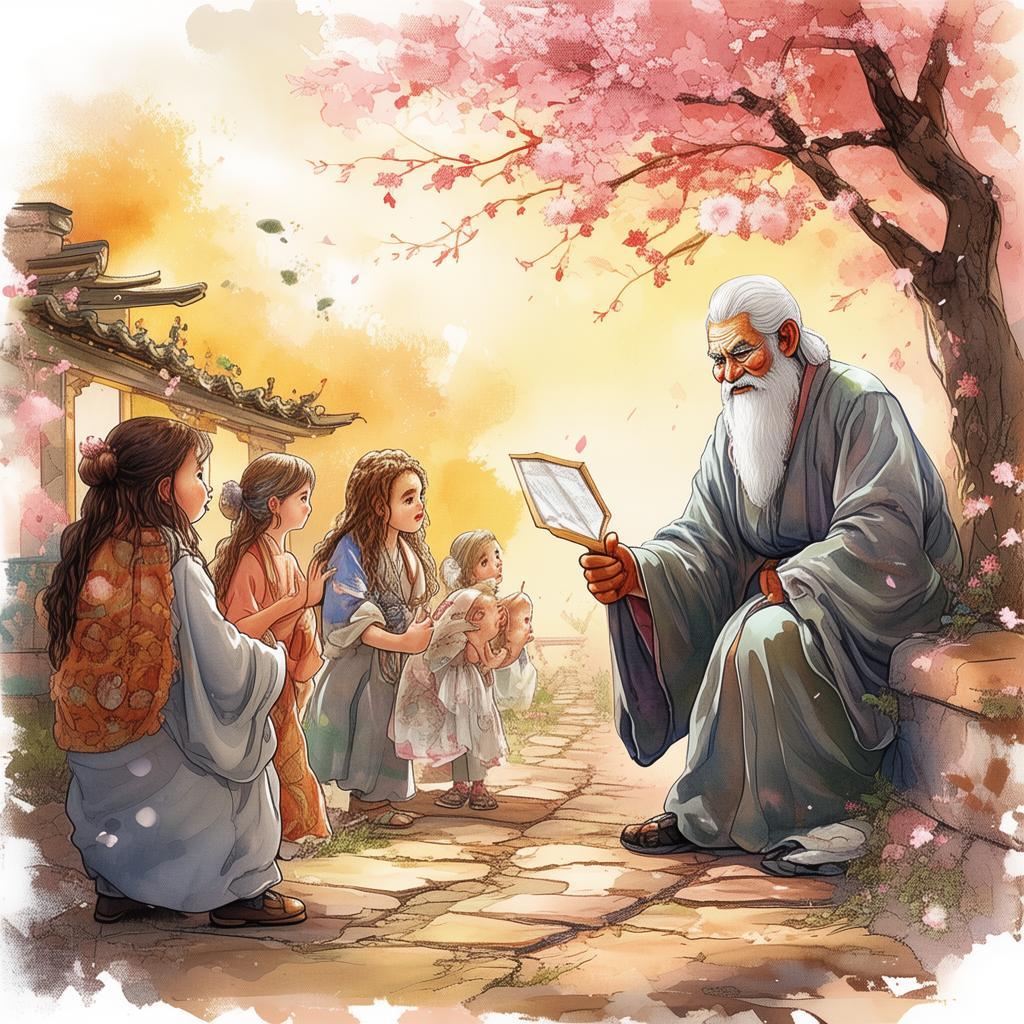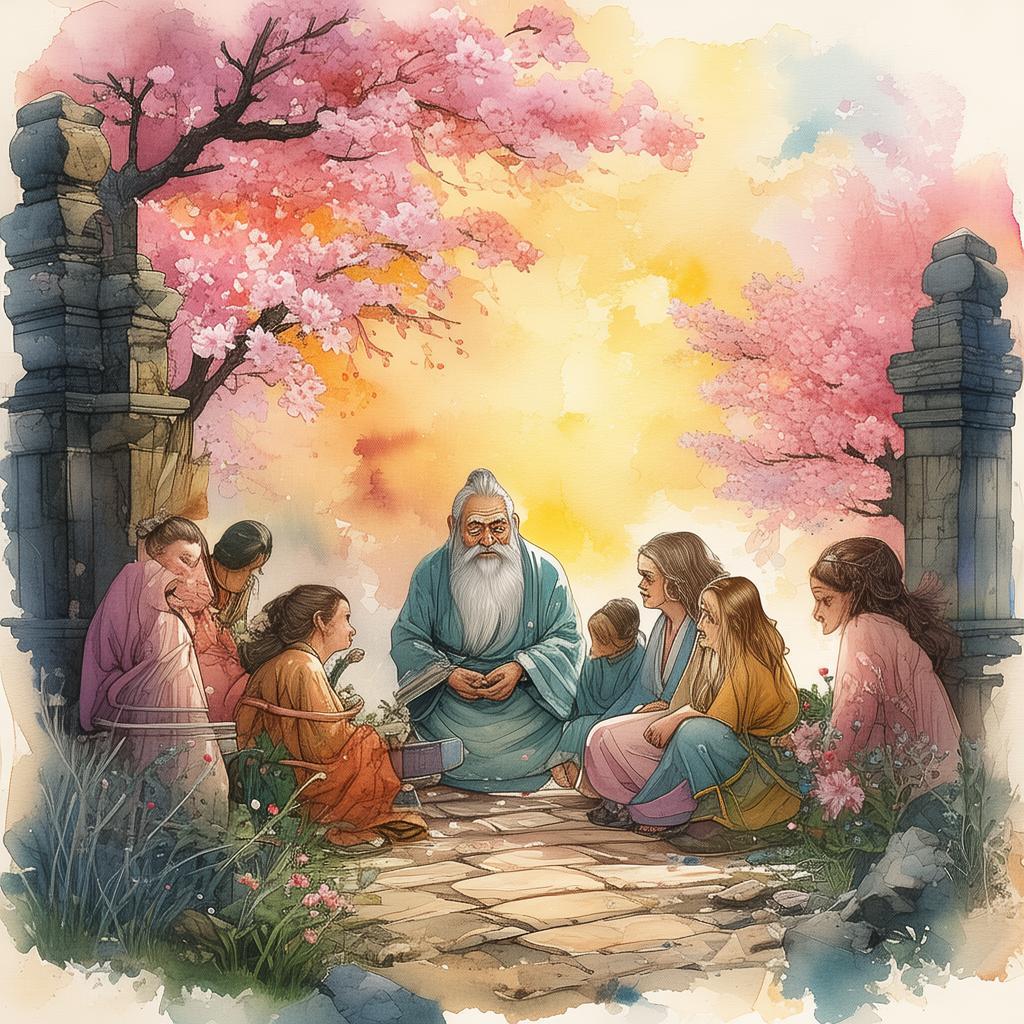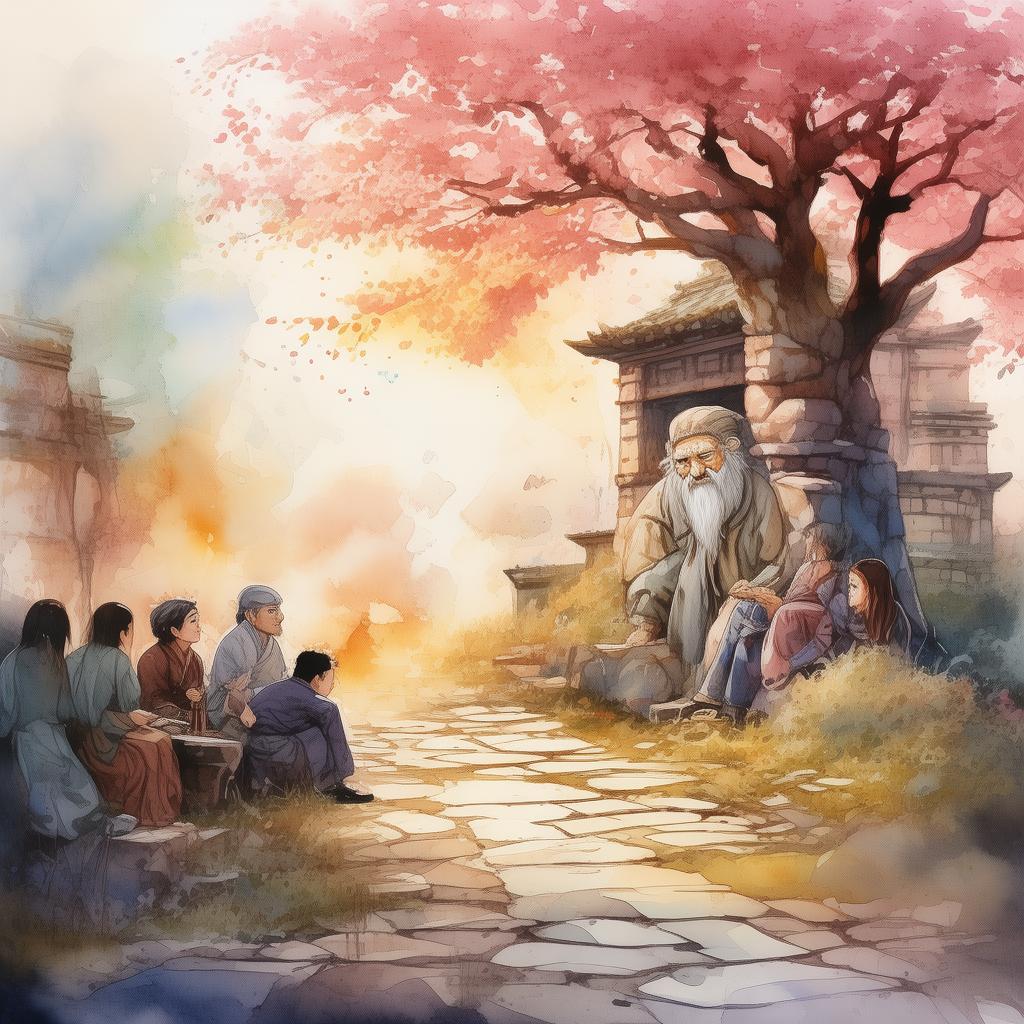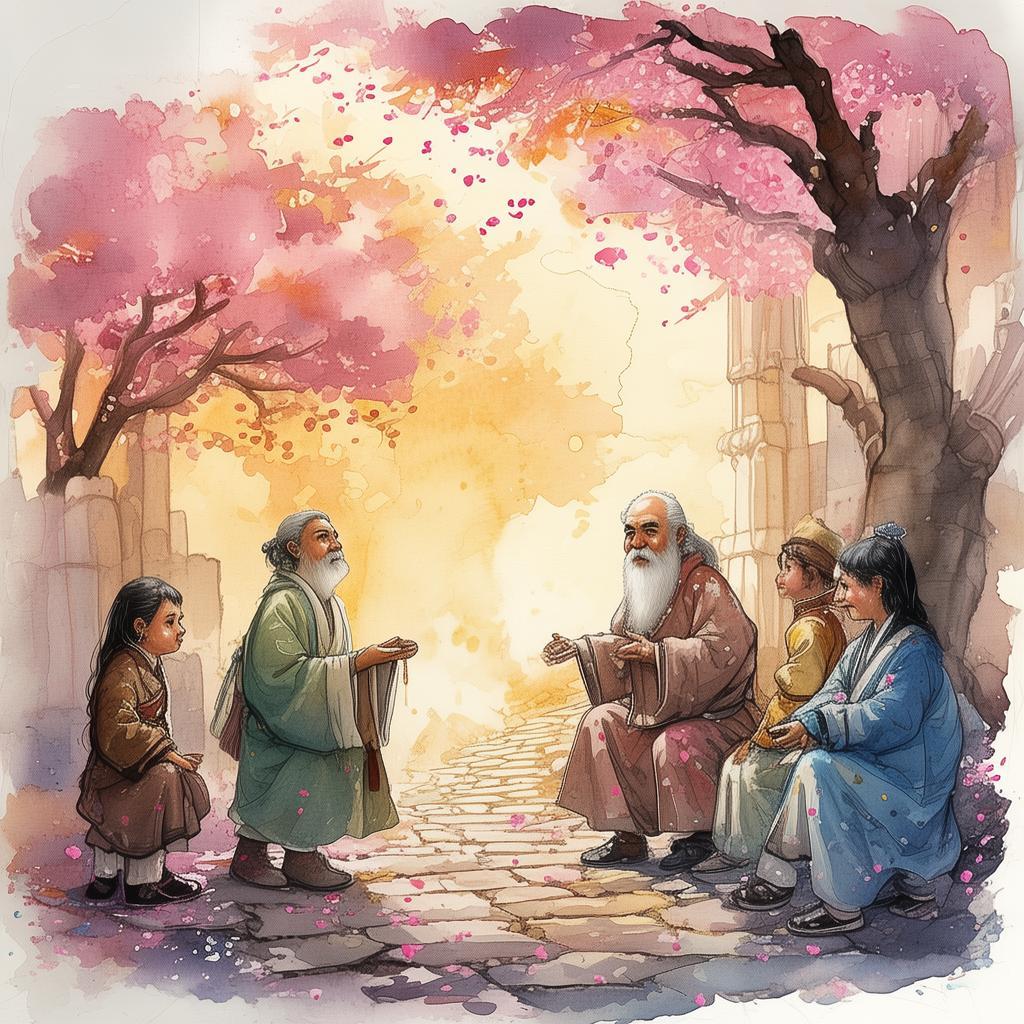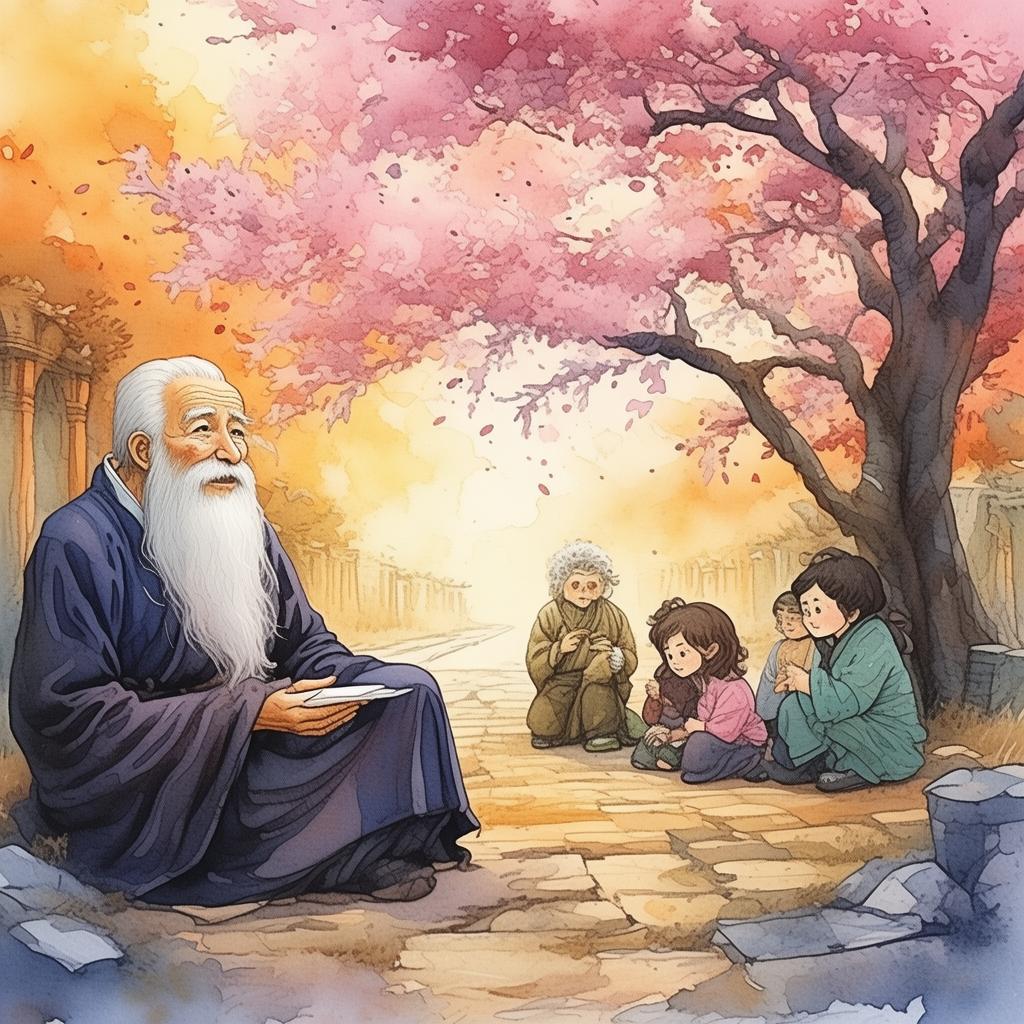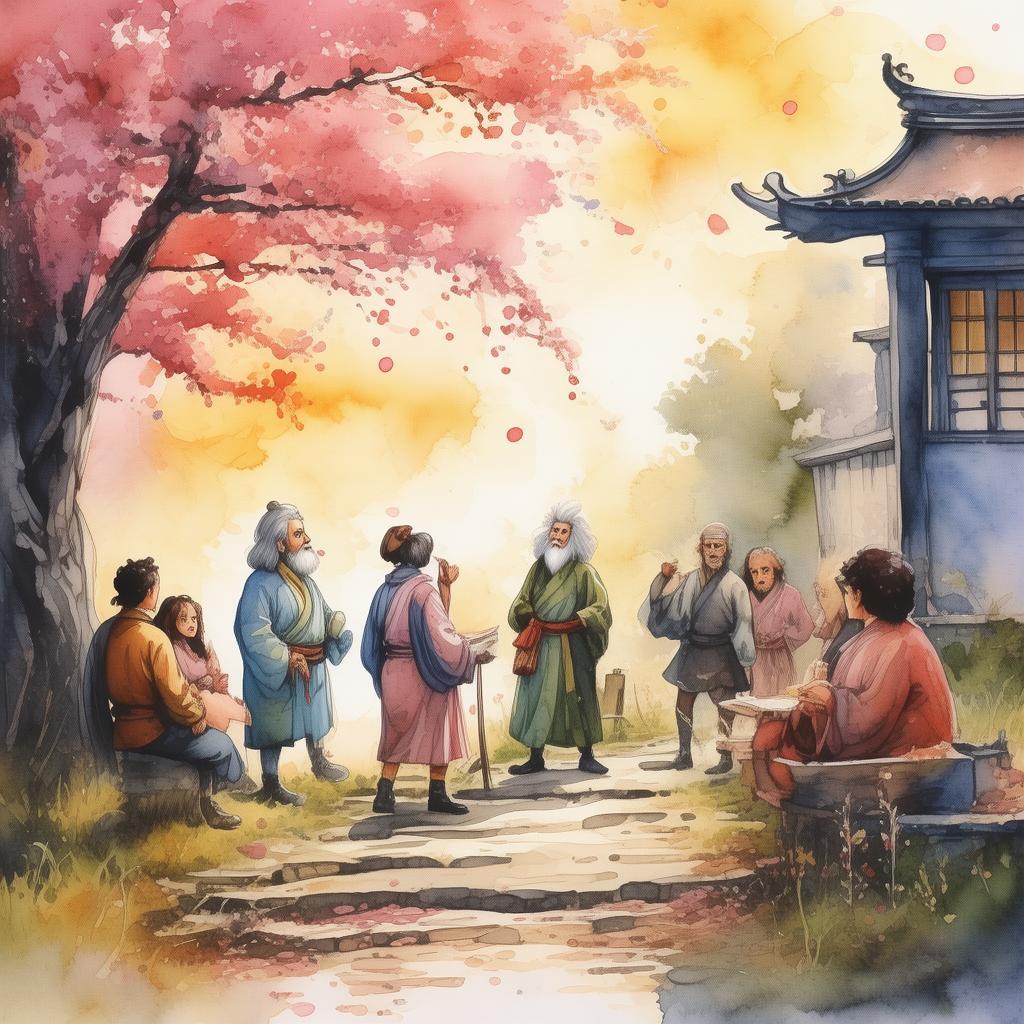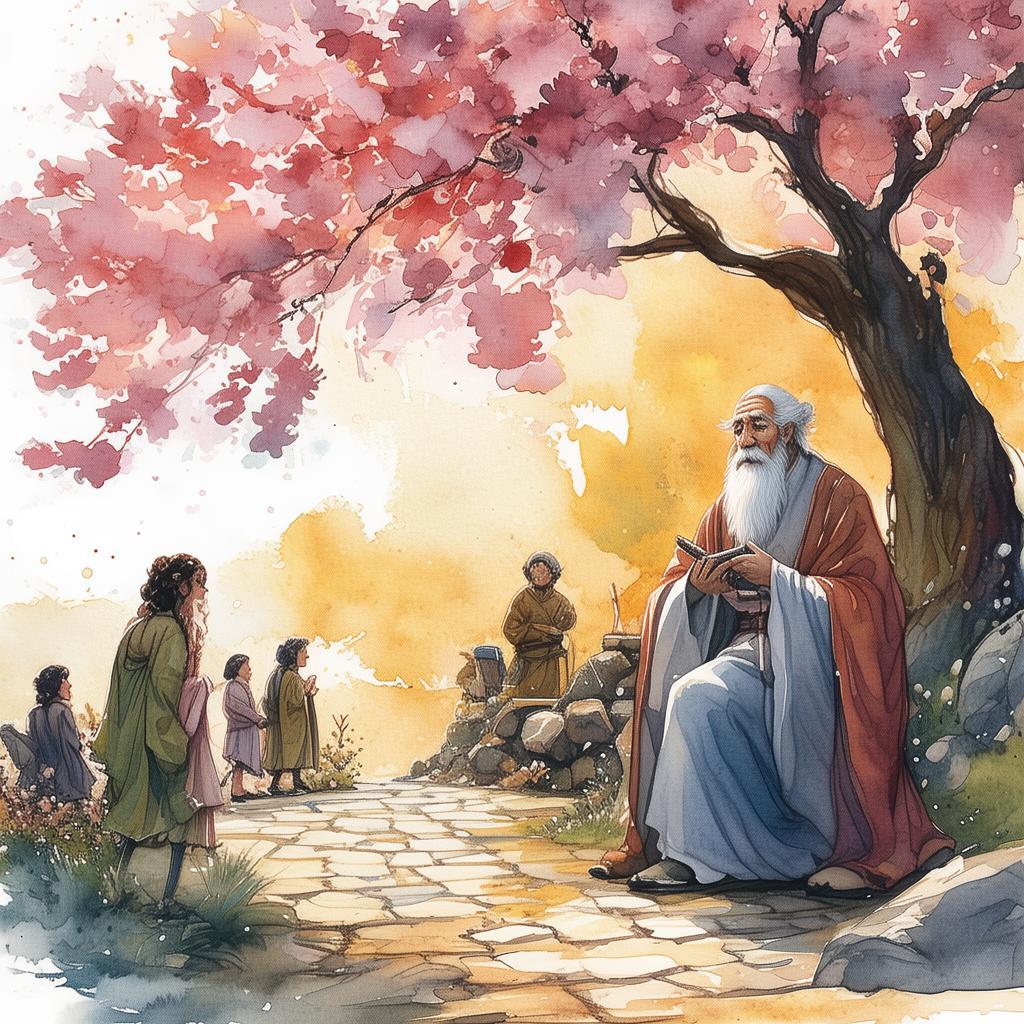The Pen of Time: Ma Liang's Journey
In the bustling streets of modern Shanghai, Ma Liang, a talented yet somewhat disillusioned writer, sat hunched over his desk. His fingers danced across the keyboard as he worked on his latest novel, a historical drama set in the Tang Dynasty. The story was a labor of love, a journey through the lives of the emperors and warriors, the poets and common folk. But as he delved deeper into the past, a strange feeling gnawed at him—a sense that something was missing.
One evening, as Ma Liang was researching the history of the Tang Dynasty, he stumbled upon an old, ornate pen in his grandmother's attic. The pen was unlike any he had seen before, with intricate carvings that seemed to tell a story of its own. Intrigued, he picked it up and noticed a peculiar symbol etched into the wood: a scroll with a swirling vortex at its center.
Ma Liang's curiosity was piqued, and he decided to incorporate the pen into his novel, imagining it as a magical artifact that allowed its wielder to travel through time. As he wrote the scene, he felt a strange sensation—a jolt that seemed to shake the very fabric of reality.
The next morning, Ma Liang found himself standing in the bustling streets of Chang'an, the capital of the Tang Dynasty. He was dressed in period-appropriate attire, and the people around him spoke in a language he could barely understand. Confused and disoriented, he tried to speak, but his words came out as jumbled noise.
"Who are you?" a young girl called out, her eyes wide with fear. "You look like a foreigner!"
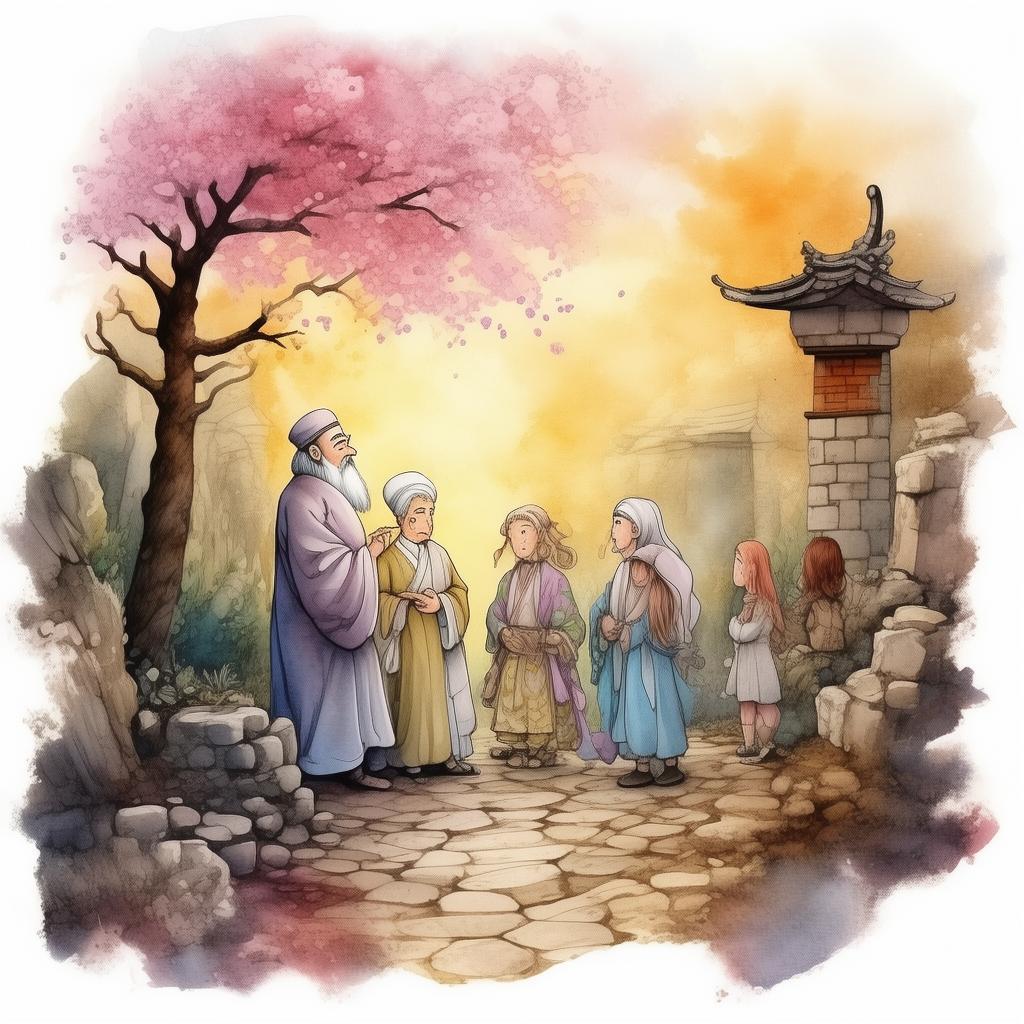
Ma Liang's heart raced. He realized that he was no longer just a writer; he was now part of the story he had created. With a shiver, he reached for the pen in his pocket, and as he did, the world around him began to blur.
When the blur cleared, Ma Liang found himself in a luxurious palace, surrounded by court officials and nobles. He was introduced as the writer of the famous novel that was said to have predicted the future of the dynasty. The empress, a wise and powerful woman, summoned him to her private chamber.
"You have a gift, young man," she said, her eyes gleaming with curiosity. "With your pen, you can alter the course of history."
Ma Liang was flabbergasted. He had no idea how to respond. He had written about the fall of the Tang Dynasty, but now he was part of it. The empress explained that the pen was a powerful artifact, capable of sending its wielder back to any point in time. But with great power came great responsibility.
The empress tasked Ma Liang with a mission: to use his pen to prevent a catastrophic event that threatened the dynasty's survival. He was to travel back to a crucial moment in history and alter the course of events to save the empire.
With the pen in hand, Ma Liang embarked on a perilous journey through time. He visited the court of the Tang Emperor, witnessing the rise of a power-hungry official who sought to seize the throne. Ma Liang knew that if this official succeeded, the empire would crumble.
With a heavy heart, Ma Liang wrote a scene in which the official was defeated by the emperor's loyal general. The pen's power was immense, and as Ma Liang wrote, the reality around him shifted. The official was no longer a threat, and the empire was safe.
But as he returned to the present, Ma Liang realized that the pen's power had a price. The more he altered history, the more his own life began to unravel. His relationships with friends and family became strained, and he felt a growing sense of isolation.
One evening, as he sat in his grandmother's attic, the pen in his hand, Ma Liang knew he had to make a choice. He could continue to change history at the cost of his own sanity, or he could let go of the pen and return to his life as a writer.
With a deep breath, Ma Liang took the pen and wrote a final scene, erasing all the changes he had made. The world around him stabilized, and he found himself back in his apartment, surrounded by the familiar sights and sounds of Shanghai.
As he sat down to write his next novel, Ma Liang realized that the experience had changed him forever. He had learned the importance of letting go and accepting the past as it was. The pen, with its power to alter history, had become a symbol of the choices we all face in life.
And so, Ma Liang continued to write, his stories filled with the magic of the pen that had once transported him through time, a reminder that sometimes, the most important journey is the one we take within ourselves.
✨ Original Statement ✨
All articles published on this website (including but not limited to text, images, videos, and other content) are original or authorized for reposting and are protected by relevant laws. Without the explicit written permission of this website, no individual or organization may copy, modify, repost, or use the content for commercial purposes.
If you need to quote or cooperate, please contact this site for authorization. We reserve the right to pursue legal responsibility for any unauthorized use.
Hereby declared.
